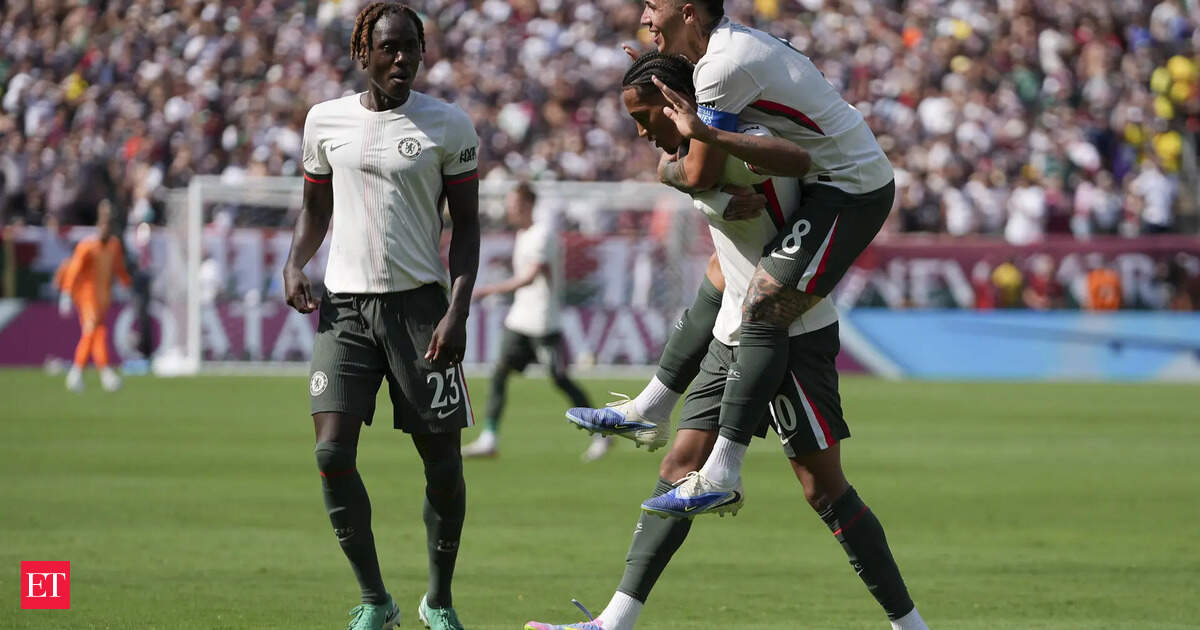Football sometimes presents narratives as improbable as they are compelling. Such was the case in East Rutherford, New Jersey, where a new chapter began for Brazilian forward Joao Pedro, albeit under highly unusual circumstances. Having only recently finalized his move to Chelsea, Pedro was thrust into the spotlight with a starting role in the FIFA Club World Cup semifinal. Not only was this his first competitive start for his new club, but it came mid-tournament, a quirk enabled by the unique structure of the competition.
Despite the unconventional timing of his integration, Joao Pedro wasted no time demonstrating his capabilities. His brace in Chelsea`s 2-0 victory over Fluminense served as an immediate and emphatic statement of intent. The first goal, arriving just sixteen minutes into the match, showcased his composure and finishing ability from the edge of the area, finding the top corner with a curling effort after a deflection kindly fell his way. His second, netted in the 56th minute, was arguably more impressive, originating from a dynamic run into the box, navigating defensive pressure before applying a clinical finish. It was a performance that immediately positioned him as a significant asset.
This standout debut provides an initial glimpse into why Chelsea invested a substantial fee, reportedly around $75 million, to bring the 23-year-old from Brighton & Hove Albion. Manager Enzo Maresca has articulated a tactical vision that moves away from relying on a single prolific goalscorer. Instead, he envisions a collective attacking unit where “four, five players” contribute significantly, each targeting double-digit goal tallies. Pedro, with his versatility across the front line, appears tailor-made for this system. This approach also seems a practical necessity given the sheer volume of attacking talent currently populating Chelsea`s roster—a number estimated to be around twenty players—creating a high-stakes competition for minutes.
Maresca`s post-match comments reinforced the club`s belief in Pedro`s inherent quality, particularly his effectiveness against teams employing a deep defensive block. The manager also touched on the forward`s positive integration, noting his Brazilian heritage and the inherent enjoyment of football associated with players from the nation. Maresca humorously acknowledged a unique advantage in Pedro`s late arrival: being relatively “more fresh” having joined straight from a holiday period compared to teammates who had undergone a full pre-season and early tournament matches. This freshness, combined with the support of teammates like fellow Brazilian Andrey Santos, who described Pedro as “amazing” and “smart,” appears to have facilitated a rapid acclimatization.
While the debut was undoubtedly impressive, the circumstances of Pedro`s inclusion—namely, suspensions elsewhere in the squad (like Liam Delap) and other injuries—underscore the competitive landscape he has entered. His task now is to build upon this initial success and consistently demonstrate the quality required to justify his significant transfer fee and secure a regular place amidst the tactical shuffling and intense competition. Maresca`s challenge lies in effectively managing and utilizing this extensive pool of attacking options, ensuring individuals like Pedro can maximize their potential. In what might be seen as a high-stakes game of attacking musical chairs within the Chelsea squad, Joao Pedro has certainly announced his presence with authority. As Maresca himself noted, while one performance doesn`t define a season, having this level of quality as an option is undeniably valuable.

